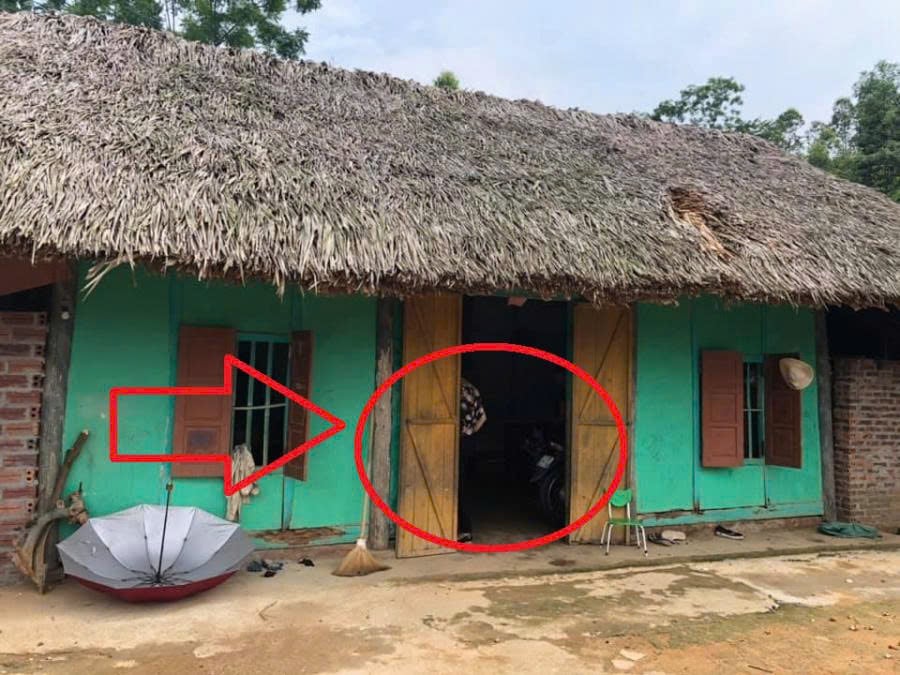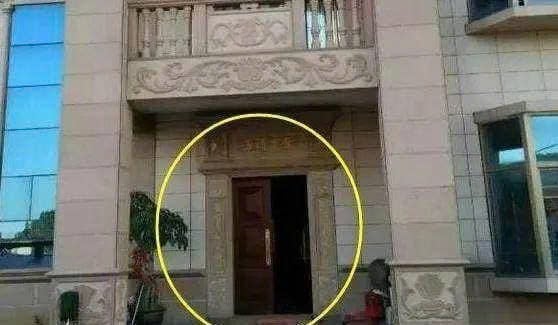In modern times, owning a home is not just about having a roof over your head, it’s about establishing a harmonious living environment that fosters prosperity, health, and well-being. However, some houses may appear aesthetically pleasing but conceal major Feng Shui flaws that can hinder your life path and bring about difficulties. Here are five types of houses that Feng Shui experts advise against buying to avoid potential pitfalls and setbacks.
1. Houses Without a Foyer: Inviting Negative Energy In
A foyer or entrance hall acts as a buffer zone between the front door and the main living area. From a Feng Shui perspective, this space is crucial for regulating the flow of energy, maintaining privacy, and controlling the energy within the home.

When a house lacks a foyer, negative energy, dust, and yin energy can directly enter the central living area, causing energy disturbances. Additionally, the absence of a foyer can make the house feel cluttered due to the lack of storage space for shoes, coats, etc. Moreover, the privacy of the occupants is compromised as guests can peer directly into the living space without a transitional area.
Identification: You know a house lacks a foyer when you open the front door and immediately see the living room or dining area with no transitional space in between.
2. North-Facing Houses: Heavy Yin Energy and Lack of Vitality
In Vietnam, located in the Northern Hemisphere, Feng Shui experts recommend favoring south or southeast-facing properties to benefit from optimal sunlight and positive energy. On the contrary, north-facing houses often present several disadvantages:
- Lack of Sunlight: Essential rooms like the living room and balcony receive insufficient direct sunlight, especially during winter.
- Year-Round Gloominess: Artificial lighting is required even during the day, resulting in a constant lack of vitality within the home.
- High Humidity: This can lead to dampness and mold, impacting both health and furniture conditions.
If you must choose a north-facing house, focus on adequate ventilation, incorporate large windows, and select building materials with good moisture absorption properties.
3. Bathroom Without Dry and Wet Separation: A Recipe for Discomfort and Safety Hazards
Bathrooms are breeding grounds for bacteria and high humidity. Without a clear separation between the dry area (sink and towel area) and the wet area (shower and bath), several issues arise:
- Slippery Surfaces: Water splashes everywhere, increasing the risk of accidents, especially for the elderly and children.
- Morning Rush Conflicts: Family members struggle to use the bathroom simultaneously due to limited space.
- Premature Appliance Wear: High humidity causes mirrors, lights, and electrical appliances to deteriorate faster.
Feng Shui-wise, bathrooms should be discreet, dry, and clean to avoid disrupting the overall energy flow of the house.
4. Rooms Without Windows: A Breeder of Yin Energy and Stagnant Air
Windowless rooms, commonly found in affordable apartment complexes, may save space but are considered a major Feng Shui taboo. Here’s why:
- Lack of Yang Energy: The absence of natural light allows yin energy to accumulate, creating an imbalanced environment.
- Stifling Atmosphere: Stagnant air affects both mental and physical well-being, leading to a sense of suffocation.
- High Electricity Costs and Mold: Constant artificial lighting is needed during the day, and high humidity causes walls and ceilings to mold and deteriorate prematurely.
If you find yourself with such a room, consider installing a glass partition, using exhaust fans, or creating a skylight to ameliorate the situation.

5. Bedroom Next to the Elevator: A Sleep Disturbance Waiting to Happen
Elevators in apartment buildings operate continuously, and bedrooms adjacent to them endure the brunt of the mechanical noise and friction. While the room may be initially intended as a “study” or “multi-purpose room,” using it as a bedroom due to space constraints is a recipe for long-term sleep disturbances, insomnia, and chronic stress.
Recommendation: Avoid choosing an apartment where the bedroom shares a wall with the elevator shaft. If this is unavoidable, utilize specialized soundproofing materials to minimize the impact.
Purchasing a home is a significant decision that goes beyond financial considerations; it encompasses Feng Shui and long-term well-being. Carefully ponder these aspects before committing to a property with flawed designs or Feng Shui pitfalls. A well-chosen living space sets the foundation for a thriving and peaceful family life.
































